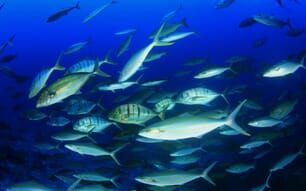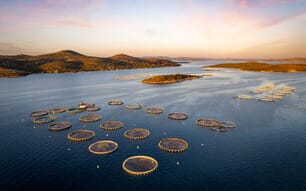"This was the final chapter of the negotiations. With the political agreement reached tonight we will have an ambitious European Maritime and Fisheries Fund for 2014-2020. This is a real victory for the European Parliament, which was heeded by the Council and the Commission, said rapporteur Alain Cadec (EPP, FR).
"The tug of war between the institutions in December allowed Parliament to return to the negotiating table with a strong position and reach a very satisfactory agreement regarding in particular the financial breakdown and engine renewal," he added.
EU Fisheries Commissioner Maria Damanaki welcomed the agreement: "I am very happy about this outcome, because we can now go full steam ahead and implement the radical changes we have agreed last year to finally put European Fisheries on a sustainable footing once and for all. I now look forward to the finalisation of the adoption process by the European Parliament and the Council so that we can start funding projects on the ground as soon as possible."
More money for data collection for better fisheries management
Parliament’s negotiators improved the Commission proposal, especially on collecting and managing fisheries data, which are needed for example, to set the Maximum Sustainable Yield required by the new CFP rules (MSY, meaning the largest catch that can be safely taken year after year and which maintains the fish population size at maximum productivity). MEPs ensured that €520 million - a considerable increase over the original Commission proposal - of the EMFF budget will be earmarked for data collection.
An action plan for small-scale coastal fishing
Another negotiating success for Parliament was to require each member state with a significant small-scale coastal fishing fleet to table an action plan setting out a strategy for the development, competitiveness and sustainability of these fisheries, which play a key role in ensuring the vitality of coastal areas.
Support for young fishermen
MEPs also amended the EMFF proposal to allow fishermen under 40 years old to be granted up to €75,000 in individual start-up support if they buy a small-scale and coastal fishing vessel between five and 30 years old and have five years' professional experience in the sector.
Engine renewal
Parliament also added EMFF support for withdrawing, replacing or modernising engines for vessels up to 24 metres long, including an requirement for those of 12-24 metres that the new engine's power output be less than that of the engine it replaces. However, an amendment to reintroduce fleet renewal subsidies was rejected.
Towards sustainable fisheries in the EU
To give effect to Parliament's agreement with the Council on the forthcoming CFP, which obliges member states to set sustainable fishing quotas from 2015 and introduces a ban on discarding unwanted fish, the EMFF will help fishermen to comply with the new rules by supporting investments in more selective fishing gear or equipment to facilitate handling, landing and storage of unwanted catches. EMFF aid will also be used to improve safety and working conditions, data collection and port infrastructure.
Next steps
After a plenary vote in October to open negotiations with the Council, the agreement will now be put to a vote in the Fisheries Committee before seeking final approval by the full House in April.
Also commenting on the decision, Uta Bellion, director of The Pew Charitable Trusts’ European marine programme and the OCEAN2012 coalition, said: “The final agreement between the EU Parliament and Fisheries Council on future EU fisheries subsidies is a mixed outcome. It includes some positive measures, among them more funding for member states to enhance data collection and improve control and enforcement. It will also strengthen provisions to allow funding to be withheld from individual recipients and member states that fail to comply with the rules of the Common Fisheries Policy.
“However, the deal includes subsidies for fishing vessel engine replacement which may increase the capacity of vessels. It also includes subsidies for the temporary cessation of fishing. Rather than contributing to ending overfishing this has the effect of merely pausing it. With this agreement it is now up to member states to choose what they allocate funding to and how ambitious they want to be implementing the reformed Common Fisheries Policy and ending EU overfishing," she concluded.



